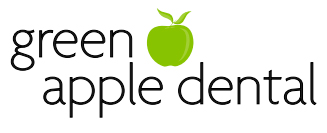Oral Health and Pregnancy
Too often, dental and oral care gets put on a backburner when we think about caring for our health, especially when there’s a whole lot of other things going on – like a pregnancy. Yet that is one of the times when special attention must be given to oral hygiene and oral care.
Not only is good oral health vital for your own general health, but links have been made between gum disease during pregnancy and premature birth and low birth weight.
Oral issues during pregnancy:
Gum disease is one of the biggest oral issues during pregnancy. Pregnancy gingivitis affects almost all pregnant women at some stage during pregnancy (normally the second trimester) but usually disappears within about six months of the birth. The gums become red, inflamed and may bleed when you brush your teeth. Gingival enlargement is the least common oral issue during pregnancy. It causes the gums to grow bigger, overlapping, and sometimes covering the teeth completely.
Pregnancy tumours affect about 1 in 10 pregnant women. They are red or purple growths which disappear after childbirth. They are usually benign and painless and if they should become painful or bleed should be checked immediately as they may need to be removed surgically.
What causes the damage?
Hormone levels are high during pregnancy to help your baby grow, but they don’t always help your teeth. They can weaken the bones and ligaments that anchor your teeth and cause the gums to swell and bleed (which makes them open to infection). In addition, studies show calcium diverted away from your bones to help develop your baby’s bones, can weaken your own bones and teeth.
The gastric reflux, or regurgitation, caused by hormones softening the muscles which normally keep food in the stomach; as well as the vomiting which accompanies morning sickness, can lead to acid build-up on your teeth which can damage the enamel and cause decay.
Oral health care during pregnancy
- Brush your teeth at least twice a day, using a soft brush. Once a day, scrape or brush the tongue, and clean between the teeth using dental floss or an interdental brush.
- If morning sickness or certain foods cause you to vomit, immediately rinse your mouth with water to remove the acid residue which could be left on your teeth, then use a fluoridated mouthwash. Brushing straightaway could worsen erosion. Brush about an hour after rinsing.
- If regular brushing makes you gag, try using a smaller brush and changing your toothpaste. If that doesn’t work, swop to brushing with water, followed by using a fluoridated mouthwash.
- Eat sensibly: Cravings during pregnancy are hard to deal with, but do your best to avoid sugary foods that could lead to tooth decay. If you weaken, rinse your mouth out after giving in to the craving. Try to include the right foods to keep your levels of Calcium and Vitamin D up to help your bones and baby’s.
- Be alert at all times to changes in your teeth and particularly in your gums. If you notice or feel anything different, don’t hesitate to check with your nearest dentist in Surrey, BC. Don’t miss your regular dental check-up, and make sure to schedule a check-up after baby is born, particularly if you suffered from any gum disease during pregnancy.





